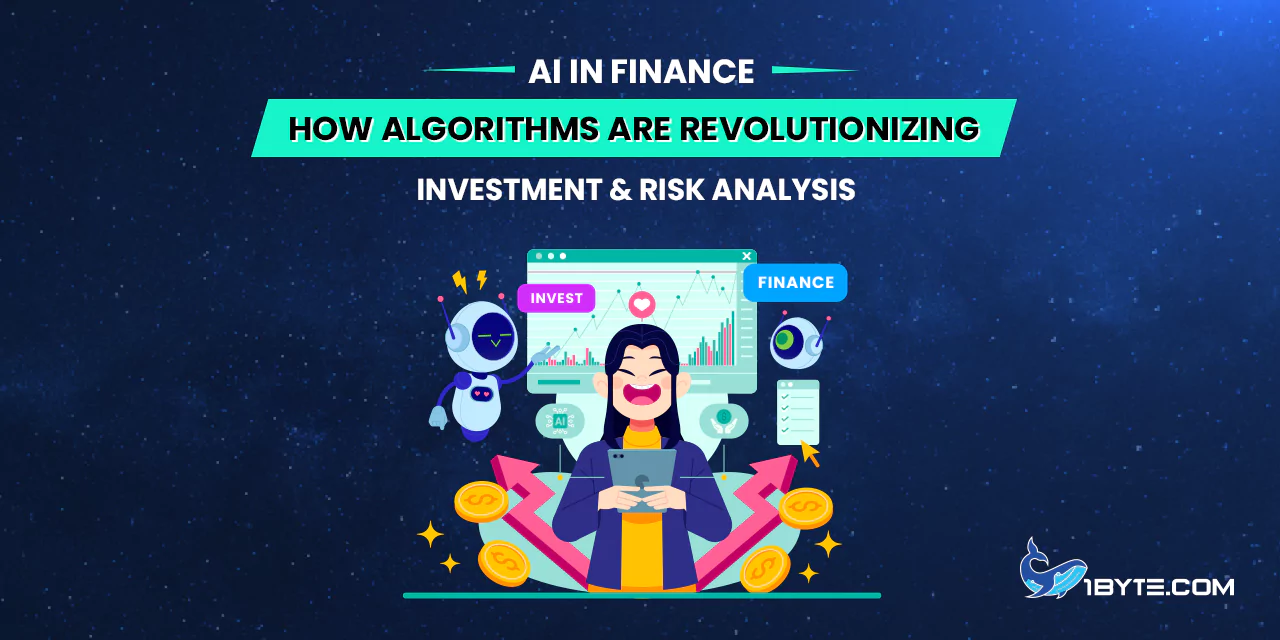AI in finance is transforming how institutions manage investments and assess risks. This is not theoretical meaning there are actual concrete results and real world application behind it.
To put things in perspective, a 2024 Mercer survey revealed that 91% of asset managers are either already using or plan to use AI in their investment strategy and research in the future. AI’s adoption is growing in financial decision making which is reflected in this widespread adoption.
An example is using JPMorgan’s “Moneyball” tool to analyze portfolio managers’ decisions to identify potential biases in such decisions and thereby help improve investment outcomes. The virtual analyst is also used by Voya Investment Management to keep a virtual eye on the stocks to detect risks and provide useful information just like someone does.
AI improves predictive accuracy in risk analysis. DIW Berlin conducted a study that revealed that improvements in AI models enabled predictions of ECBC policy decisions from a 70% accuracy up to an 80% accuracy. This shows that AI can be capable of understanding complex financial communication.
BlackRock is a firm with several AI systems, one of which is Aladdin, which uses AI systems to review market data and optimize portfolios. The second category utilizes vast amounts of information to determine more informed investment strategies.
Despite these advancements, challenges remain. The Bank of England has warned markets being destabilized if traders flock in a herd following other traders’ use of similar AI models. This highlights the need for careful implementation and oversight of AI in finance.
Overall, AI in finance is reshaping the industry by enhancing investment decisions and risk assessments. With growth in adoption, innovation and rational risk management will need to be balanced. Read this article from 1Byte to find out more.
AI in Investment Strategy
AI in finance is transforming investment strategies across the industry. A 2024 Mercer survey reveals that 91% of asset managers are either using or planning to use AI in their investment processes, highlighting its growing significance .
FURTHER READING: |
| 1. AI in Project Management: Boosting Efficiency, Planning, and Team Dynamics |
| 2. How Will AI Affect Graphic Design? |
| 3. How Will AI Affect Software Development? |
How Algorithms Analyze Large Datasets to Identify Trends and Opportunities
AI in finance is transforming investment strategies by enabling algorithms to analyze vast datasets and uncover actionable trends. These systems deal with structured data, for instance, financial statements, as well as unstructured data, for instance, news articles and social media posts, and find patterns using these data to help make investment decisions.
For instance, BlackRock’s Aladdin platform utilizes AI to assess market sentiment and optimize portfolio allocations. JPMorgan’s “Moneyball” tool performs the same function for portfolio managers who aim to detect and correct their biases in their investment choices.

The adoption of AI in finance is widespread. In fact, a 2024 Mercer survey found that 91 percent of asset managers are either using AI or planning to use AI for investment processes. The fact that more and more people are relying on AI to improve investment strategies and risk assessments is indicated by this trend.
On top of this, with AI driven algorithms, you can make trades that a human cannot make since they would take too long and hence lose out in response to market changes. The ability to do this is especially useful in high frequency trading scenarios where profits can be based on margins of entire milliseconds.
In summary, AI in finance empowers investors to process complex datasets efficiently, identify emerging trends, and make informed decisions, thereby revolutionizing traditional investment strategies.
Benefits: Speed, Precision, and Bias Reduction
AI in finance offers significant benefits to investment strategies, notably in speed, precision, and bias reduction.
Speed
By processing such a large amount of data at such a fast pace, AI algorithms are an ideal way to make prompt decisions. As an example, AI models can execute trades as fast as possible that humans can’t do, taking advantage of real time market data and making decisions when to enter and when to leave opportunities and when to face it in terms of risk management.
Precision
AI can be used to analyze complex datasets and provide higher accuracy rates in financial forecasting. According to a study, machine learning algorithms can decipher patterns and anomalies in large datasets — historical market data and social media sentiment — to make a more precise investment later on.
Bias Reduction
Investment decisions are mitigated by human bias through the use of AI. Zest AI and other such tools analyze complex data to remove bias from financial institution decisions , allowing them to review and resolve more accurately. Besides, AI robo advisors will allow investment to be managed effectively, decreased human bias as well as there will be lowered fees.
Incorporating AI in finance thus streamlines operations, enhances decision-making accuracy, and promotes fairness in investment strategies.
AI in Risk Analysis
AI in finance is transforming risk analysis by enabling institutions to detect, assess, and manage threats more effectively. Vast datasets are processed by advanced algorithms to find patterns and anomalies that are missed by traditional methods.
Role of Machine Learning in Predicting Financial Risks and Policy Outcomes
The advance of machine learning is revolutionizing how finance risk analysis goes as it makes it possible for faster and more accurate financial risk and policy outcome predictions.
This was demonstrated through a 2025 study by DIW Berlin. To this end, scientists created an AI-based text analysis model to analyze the European Central Bank communications and boost the predictability of the monetary policy decisions up to 80% from 70%.

AI tools are being adopted by financial firms to help them in risk management. For example, IBM Watson can analyze operational risks as they occur in real time and institutions can respond accordingly. AI helps Moody’s Analytics to assess credit risks as well as forecast how many future defaults could be expected.
However, the rapid integration of AI in finance also introduces new challenges. Similar AI models could bring about herd behavior by traders and make markets unstable, according to the Bank of England. The Bank is looking at incorporating AI in its annual stress tests in order to help manage the risks.
In summary, AI in finance enhances risk analysis by providing faster, more precise assessments. Therefore, it requires a certain amount of oversight, without which there are dangerous systemic risks.
Tools like Voya’s Virtual Analyst for Real-time Stock Monitoring
AI in finance is transforming risk analysis by enabling institutions to detect, assess, and manage threats more effectively. Vast datasets are processed by advanced algorithms to find patterns and anomalies that would otherwise have been difficult to spot.
Voya Investment Management monitors stocks for risk potentials for its human rework team by harnessing a virtual analyst. It is a tool driven by AI that gives portfolio managers high value alerts that help it to spot red flags in real time.
The virtual analyst or machine learning models analyze all kinds of data such as financial statements, market trends and also alternative data sources. Based on this information, it will process and find patterns and anomalies that might indicate possible risks or opportunities.
Voya’s approach exemplifies the integration of AI in finance, where technology augments human expertise to enhance decision-making processes. The insights from the virtual analyst prove to be a valuable information resource to portfolio managers, who are able to use the predictions from the virtual analyst to make more informed investment decisions.
The idea of combining the abilities of AI tools with human analysts to perform risk analysis represents a change in the way such an analysis is performed in the financial sector. As AI in finance continues to advance, tools like Voya’s virtual analyst are poised to play an increasingly pivotal role in investment strategies.
Challenges and Considerations
AI in finance is rapidly transforming the financial industry, offering unprecedented efficiencies and insights. However, this rapid adoption also brings forth significant challenges and considerations that institutions must address to ensure stability and trust.
Risks of Algorithmic Convergence and Herd Behavior
AI in finance is transforming the financial industry, offering unprecedented efficiencies and insights. And yet this rapid adoption comes at a price: heavy challenges and considerations that must be dealt with by institutions to do so stably and with trust.
They could also contribute to market instability, becoming one of the major concerns. Herd behavior and the risk of amplifying market shocks is what the Bank of England highlights in case traders implement similar AI models, too. Collective actions, if conducted inadvertently, can lead to instability in the market and potentially unstable, leading to systemic risks in the financial system.
Transparency of AI decisions is another critical issue alongside explainability. However, AI algorithms like some of the black boxes pose a challenge for the financial institutions as it is hard to understand or explain how the model arrived at these decisions. This lack of clarity can break down customer trust and keep you from staying compliant with regulatory standards. An effort is underway to develop so-called ‘glass box’ models, which are more transparent and accountable.
Data quality and governance present additional challenges. The basis of most AI systems is working with large datasets, therefore any bias or inaccurate data can result in flawed outcomes. The first step to manage these risks is to ensure data integrity and effective governance frameworks.
Moreover, the integration of AI in finance raises ethical and legal considerations. Care must be made in looking after issues like data privacy, consent and the risk for discriminatory practices. With regard to these aspects, regulatory bodies are paying more and more attention in order to achieve implementation of AI according to the ethical standards and legal requirements.
In conclusion, while AI in finance offers significant benefits, it also necessitates careful consideration of the associated challenges. These issues are being identified and must be proactively tackled by financial institutions to be able to leverage AI responsibly and sustainably.
Importance of Ethical Use, Transparency, and Human Oversight
AI in finance is transforming the financial industry, offering unprecedented efficiencies and insights. But along with such rapid adoption also come serious challenges and considerations that institutions will have to contend with to achieve mass stability and trust.

A big worry is that AI models actually exacerbate market instability. For example, the Bank of England has a problem with similar AI models being used by traders to herd, amplifying market shocks. Collective actions of this type may not reduce market stability but, instead, may unwittingly create systemic risks to the system of finance.
AI decisions also need to be transparent and explainable. Some AI algorithms are the “black box”: financial institutions find it difficult to understand and justify the decisions taken by these systems. Unclear as it is, this can adversely affect compliance with regulatory standards as well as customer trust. Developing ‘glass box’ models is an effort to improve transparency and accountability.
Data quality and governance present additional challenges. As such, AI systems overly depend on large datasets, thus any biases or inaccuracies existing in the data are reflected in the outcomes. Such risks need to be mitigated by implementing robust governance frameworks to ensure data integrity.
Moreover, the integration of AI in finance raises ethical and legal considerations. Data privacy, consent and the danger of discriminatory practices must be carefully guided. Increasingly, regulatory bodies are taking notice here and are concentrating on these aspects so that AI deployment follows ethical standards and legal requirements.
In conclusion, while AI in finance offers significant benefits, it also necessitates careful consideration of the associated challenges. Thus, these issues have to be proactively dealt with by the financial institutions in order to fully reap the promise of AI in a responsible and sustainable manner.
Leverage 1Byte’s strong cloud computing expertise to boost your business in a big way
1Byte provides complete domain registration services that include dedicated support staff, educated customer care, reasonable costs, as well as a domain price search tool.
Elevate your online security with 1Byte's SSL Service. Unparalleled protection, seamless integration, and peace of mind for your digital journey.
No matter the cloud server package you pick, you can rely on 1Byte for dependability, privacy, security, and a stress-free experience that is essential for successful businesses.
Choosing us as your shared hosting provider allows you to get excellent value for your money while enjoying the same level of quality and functionality as more expensive options.
Through highly flexible programs, 1Byte's cutting-edge cloud hosting gives great solutions to small and medium-sized businesses faster, more securely, and at reduced costs.
Stay ahead of the competition with 1Byte's innovative WordPress hosting services. Our feature-rich plans and unmatched reliability ensure your website stands out and delivers an unforgettable user experience.
As an official AWS Partner, one of our primary responsibilities is to assist businesses in modernizing their operations and make the most of their journeys to the cloud with AWS.
Conclusion
AI in finance is reshaping the financial landscape, offering unprecedented efficiencies and insights. Between 2025, 85% of organizations have adopted AI, compared to 45% in 2022, in multiple business areas within finance.
However, to harness the full potential of AI in finance responsibly, institutions must prioritize ethical use, transparency, and human oversight. This necessitates implementation of robust governance frameworks and attestation of integrity of data.
In conclusion, AI in finance offers significant benefits, including enhanced investment strategies and improved risk analysis. Financial institutions can use AI to innovate and keep things steady in the changing financial scene by being ahead of the curve in the challenges that come along with it.

